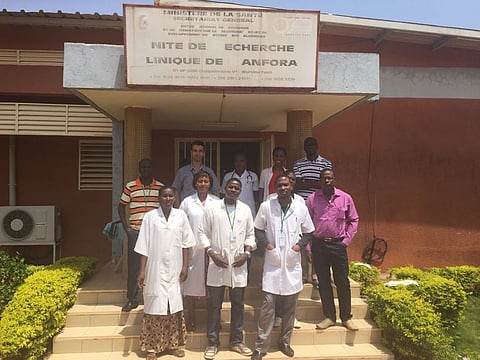New York University Abu Dhabi researchers discover immune evasion strategy by parasite that causes malaria
Findings can help with the development of more effective vaccine and treatments

Abu Dhabi: Researchers from New York University Abu Dhabi (NYUAD) have made new findings on how the parasite that causes malaria is able change the human immune response to the infection. “Our results shed new light on a mechanism for the weakening of adaptive immunity by invasive parasites,” said Aïssatou Diawara, associate scientist.
As part of their research, which was carried out in collaboration with the Centre National de Recherche et de Formation sur le Paludisme in Burkina Faso, the researchers studied the blood of children in rural regions of the West African nation, which led them to the discovery.
The researchers found that a class of genes, microRNAs — small molecules that play an integral role in regulation of genes involved in immune response — cause cell death of adaptive immune cells when in the presence of the Plasmodium parasite, which causes malaria. Once the parasite avoids the immune response in the blood, it is then able to proliferate and invade other blood cells. It was also discovered that some microRNAs are under genetic control, which may explain why individuals and populations vary in their ability to cope with infection.
Next step
“The next step for the team will be to perform more functional tests and to gain a better understanding of why certain groups of people in Africa are more immune to the disease than others,” said Youssef Idaghdour, assistant professor of biology. “Due to the impact of COVID-19 on health care systems, and screening and prevention programmes, the burden of malaria could be worse in the coming years and it is our hope that this research can contribute to reaching the long-term goal of malaria elimination,” he added.
Sign up for the Daily Briefing
Get the latest news and updates straight to your inbox









